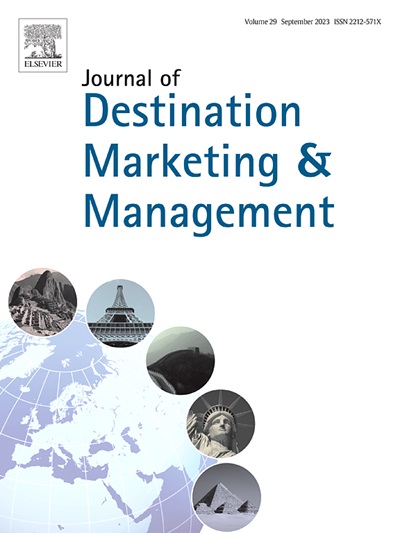触觉阻塞对游客求异消费行为的影响
IF 7.4
2区 管理学
Q1 HOSPITALITY, LEISURE, SPORT & TOURISM
引用次数: 0
摘要
感官互动是旅游体验的重要组成部分。然而,游客经常在景点遇到“禁止触摸”的政策,特别是那些具有丰富历史、自然或文化意义的景点。这种限制会导致触觉阻塞,这是指与物体的物理交互的隔离,导致无法满足的触觉欲望。这项研究调查了这种限制是否会促使代偿行为,特别是在消费中增加了追求多样性的倾向。我们进行了四个实验来研究触觉阻断对直接和间接感觉补偿的影响。研究结果表明,触觉阻塞增强了自由约束感,促使游客在消费中寻求多样化,作为一种心理补偿。购买目的和触摸需求(NFT)被确定为调节因素。这些结果强调了感官体验在旅游管理中的重要性,并对旅游营销人员、零售商和目的地管理者具有重要意义。本文章由计算机程序翻译,如有差异,请以英文原文为准。
The impact of haptic blocking on tourists’ variety-seeking consumption behavior
Sensory interaction is a vital component of the tourist experience. However, tourists often encounter “no-touch” policies at attractions, particularly those rich in historical, natural, or cultural significance. This restriction can lead to haptic blocking, which refers to the isolation of physical interaction with objects, resulting in unfulfilled tactile desires. This study investigates whether such restrictions prompt compensatory behaviors, particularly an increased inclination toward variety-seeking in consumption. Four experiments were conducted to examine the influence of haptic blocking on both direct and indirect sensory compensation. The findings reveal that haptic blocking enhances the sense of freedom constraint, prompting tourists to seek variety in consumption as a way to mentally compensate. The purpose of purchase and the need for touch (NFT) were identified as moderating factors. These results emphasize the importance of sensory experiences in tourism management and hold significant implications for tourism marketers, retailers, and destination managers.
求助全文
通过发布文献求助,成功后即可免费获取论文全文。
去求助
来源期刊
CiteScore
18.60
自引率
3.60%
发文量
46
审稿时长
43 days
期刊介绍:
The Journal of Destination Marketing & Management (JDMM) is an international journal that focuses on the study of tourist destinations, specifically their marketing and management. It aims to provide a critical understanding of all aspects of destination marketing and management, considering their unique contexts in terms of policy, planning, economics, geography, and history. The journal seeks to develop a strong theoretical foundation in this field by incorporating knowledge from various disciplinary approaches. Additionally, JDMM aims to promote critical thinking and innovation in destination marketing and management, expand the boundaries of knowledge, and serve as a platform for international idea exchange.

 求助内容:
求助内容: 应助结果提醒方式:
应助结果提醒方式:


